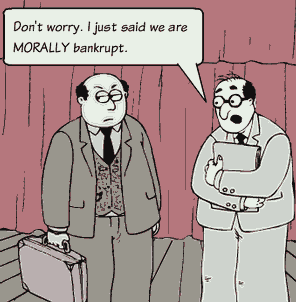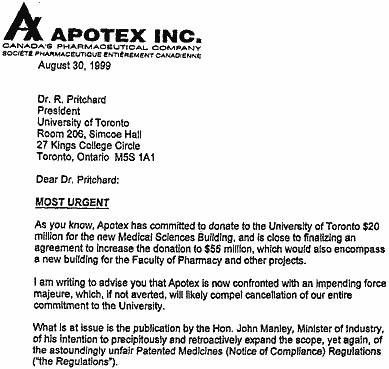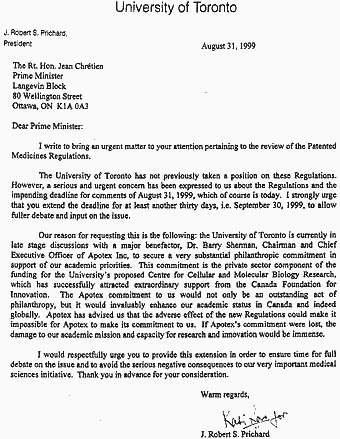 The August 2007 GMC "trial" of Dr Jayne Donegan (MBBS DRCOG DCH DFFP MRCGP MFHom) is relevant to the process of scientific debate.
The August 2007 GMC "trial" of Dr Jayne Donegan (MBBS DRCOG DCH DFFP MRCGP MFHom) is relevant to the process of scientific debate. Dr Donegan is a medical doctor and family practitioner. She has an interest in homeopathy. She graduated as a medical doctor at St Mary's Hospital Medical School (London) in 1983. Donegan is however one of several medical doctors in the United Kingdom who holds views about science that have led to selective disciplinary/"fitness to practice" procedures (FTP) by the General Medical Council.
I hold no particularly strong views on vaccination. I agree with most observers (such as the respected Cochrane Collaboration) that much of the science in this area is exceedingly poor in terms of quality and transparency. However the mode of debate here is of concern. Gratuitous attempts to discredit critics never turn out well. More particularly so when those critics have raised points about aspects of the flimsiness of the scientific record which even hard-nosed skeptical scientists (such as myself) would find of concern.
Dr Donegan's "sin" had nothing to do with homeopathy. I have views about homeopathy that are very unlikely to be viewed sympathetically by Dr Donegan. She testified in an important court case in which mothers and fathers differed in their views over whether their children should be vaccinated (vaccination is not compulsory in the UK). Two witnesses for the fathers provided the view of the Department of Health. Donegan provided testimony for the mothers. She provided a report which concluded that a perfectly rational parent making a decision about vaccination for their own child might well have some valid fears about the integrity and strength of some aspects of the underlying science. For her sins, Jayne was subjected to a lengthy Fitness to Practice Procedure.
The stated charge was that she had written a medical report about the underlying science for the court that:
- Gave false and/or misleading impressions of the research which you relied upon,
- Quoted selectively from research, reports and publications and omitted relevant information,
- Allowed your deeply held views on the subject of immunisation to overrule your duty to the court
- Failed to present an objective, independent and unbiased view
... and having done so, Dr Jayne Donegan was charged with serious professional misconduct, and with bringing the profession into disrepute.
Unfortunately for the GMC Donegan presented overwhelming evidence to back up the science she had actually presented to the court, leaving the distinct impression that all three opposing experts should have been placed in her position. The GMC had no choice but to clear her of all charges last week (24 August 2007).
The case appeared to have been brought by the GMC itself, and as far as I am aware there was no complainant. Her report was challenged by "GMC expert, Dr Elliman" who produced a supposedly objective evidence-based report on Donegan's report. Donegan's report had in turn challenged expert reports produced for the fathers.
The entire transcript of this August 2007 "trial" is now available online. A detailed reading of the transcripts (particularly Days 8, 9 and 10) provides an interesting commentary on science.
We will no doubt read nothing at all of this in the Medical Journals (or we will perhaps read yet another distorted version of a medical "scandal" in the BMJ that skirts around all of the relevant principles and lessons in favour of a few lurid but irrelevant personal details).
Open and fear-free scientific debate are the real casualties of the GMC action here, irrespective of any concerns about vaccines or homeopathy. The effect on debate is chilling, and goes far beyond those areas. There are of course many legitimate areas of concern about science in medicine right now - both in terms of interepretation and probity. Bullying of those who raise concerns is not how science progresses.
The GMC in their groveling climb-down included a bit of ad hominem to the effect that what Donegan derived from some of the publications she cited differed from the conclusions of the authors (as if this were improper) even though the points she raised were scientifically valid criticisms of those publications. That for the information of the GMC is what being an expert witness (and an honest reviewing scientist) is all about. An expert witness is there to discuss scientific evidence and it's veracity, and to discuss where the conclusions of authors appear (through ignorance, wishful thinking, or scientific misconduct) to overstate or misrepresent data. It is precisely why the GMC should only act to ensure the integrity of scientific procedures, while striving to avoid suppressing actual scientific discussion.
The case also raises issues about the confidentiality of FTP procedures - the same issues of confidentiality that have been raised in the Blakemore Brown case. The issue with Blakemore Brown is whether an individual is entitled to breach her own confidentiality (but not patient confidentiality) as an act of self preservation when accused of misconduct (or in her case mental illness) - even if it leaves expert assessors struggling to justify their testimony. I am presuming that the GMC have no problem with the publication of the full transcripts in the Donegan case, and I am therefore puzzled about the apparent claims with regard to Blakemore Brown.
Some snippets from the transcript indicate the flavour of this case.
All are by Mr Stern, legal representative for Donegan:
Day 9 Page 63:A number of the points made by Dr Elliman .... is that Dr Donegan has omitted the opinion of the writer of the research, and Mr Kark cross-examined time and time again about this, the opinion of the writer of the research and the conclusion that the writer of the research provides in the research, which is essentially, "This is likely, that is likely, this may be the case, that is a possibility, possibly not, possibly there is no connection", et cetera.
Dr Fletcher did in fact give some evidence about this and had a view about this. He said, and again I am paraphrasing, that essentially you could take the data and pretty much come to any view you wanted to. He did not have a high regard, I think, for the research. Indeed he is supported to some extent by the Cochrane Collaboration, which was produced by Dr Elliman. The Cochrane Collaboration, you will remember, just looking at the MMR, said that there were something like 5,000 pieces of research papers that were initially looked at in relation to MMR and that, once they analysed those 5,000 papers against the criteria that they thought was appropriate for inclusion, non-bias, etc, there were I think something like 31 pieces of research that met that criteria. So, in my submission Dr Fletcher is supported in his assessment of the absence of science from a lot of the research.
Day 9 Page 64: The test of the clarity or otherwise of an expert report could never be whether a non expert might be misled. The whole purpose of an expert report is to provide an opinion on a subject which is by definition outside the knowledge and understanding of non-experts. That is why they are entitled to give an opinion.
Day 9 Page 68: It is to some extent an area I do not profess to understand where, for reasons best known to those who are involved, debate appears to be stifled and there appears to be an area where we are all bullied not to discuss it.
Day 9 Page 69: Again, Dr Elliman does not seem to consider any point about that can be properly made unless you put the other side of the coin, that is to say, "By the way the vaccine is effective and works and there is a high rate of efficacy."
The point that she [Donegan] makes is true. There is no doubt about that. She is just giving a description of it. You can see she is beginning in the 1950s. She goes on in 1978, setting out there some of the points. Of course it is selective. Everything is selective. There is no word that one can choose in any sentence, either spoken or written, which does not involve a selection and therefore the omission of other words. That is the nature of language.
Day 9 Page 71: There is also, in relation to this particular part, that Dr Elliman criticises Dr Donegan for not mentioning this Nilson research. This is one of a number of criticisms - I cannot remember how many there are, but maybe on three or four occasions - where he complains that she has not referred to particular papers, which he says is a larger study, a better study or a more helpful study or whatever. If she had the study and deliberately did not include it, one could understand the point
The point is in any event not a good one, in my submission, because, again not mentioned by Dr Elliman, none of the papers he says should have been referred to by Dr Donegan were referred to by Dr Conway or Professor Kroll. The test, if one wants to look at the test, is this: if the assertion was that no reasonable expert could have failed to have pointed to those particular pieces of research, then that would be a fair point if Dr Conway or Professor Kroll said, "This particular study is so well known I cannot imagine how it is that Dr Donegan has failed to mention it." It is a poor point, because all three of the individuals, Conway, Kroll and Donegan do not refer to it
Day 9 Page 82: That is why Dr Donegan, as she told you, was initially reluctant to help or to be an expert, but felt morally under a duty to assist the mothers in preparing this report because otherwise they would have no-one to assist them and to put the other side of the coin. So rather I suppose as she does in her surgery, explaining both sides, she hoped that she would be able to at least put the other side in the absence of that being done by Dr Conway or Professor Kroll. Had they fulfilled their task appropriately under the CPR 35 then it may be she would not have needed to provide a report at all because, had they included in it all the possible side effects, all the potential adverse reactions and dealt with that matter fully, then Dr Donegan's report would be otiose.
Day 9 Page 14: what we are going to look at now, the second issue - the deeply held views point [the charge that Donegan allowed her "deeply held views on the subject of immunisation to overrule her duty to the court"]
This is, I am afraid, another term that has never been analysed or, indeed, you have not been assisted as to what it is that you are supposed to understand by that and, therefore, nor has Dr Donegan. Does it mean deeply held views in relation to anti-vaccination? Does it mean deeply held views of immunisation concerning the safety of vaccination of children? Does it means deeply held views on the subject of immunisation relating to the safety of scientific research material?
Earlier|Later|Main Page
 I was amused to see a report this week on copyright violations by the organization
I was amused to see a report this week on copyright violations by the organization 

 It isn't hard to understand the pressures on a University President (or Vice Chancellor) to do the wrong thing. Let's take the case of Nancy Olivieri at the University of Toronto. The University of Toronto didn't do the right thing for her. They didn't do the right thing for our patients who depend on integrity of the scientific process.
It isn't hard to understand the pressures on a University President (or Vice Chancellor) to do the wrong thing. Let's take the case of Nancy Olivieri at the University of Toronto. The University of Toronto didn't do the right thing for her. They didn't do the right thing for our patients who depend on integrity of the scientific process.

